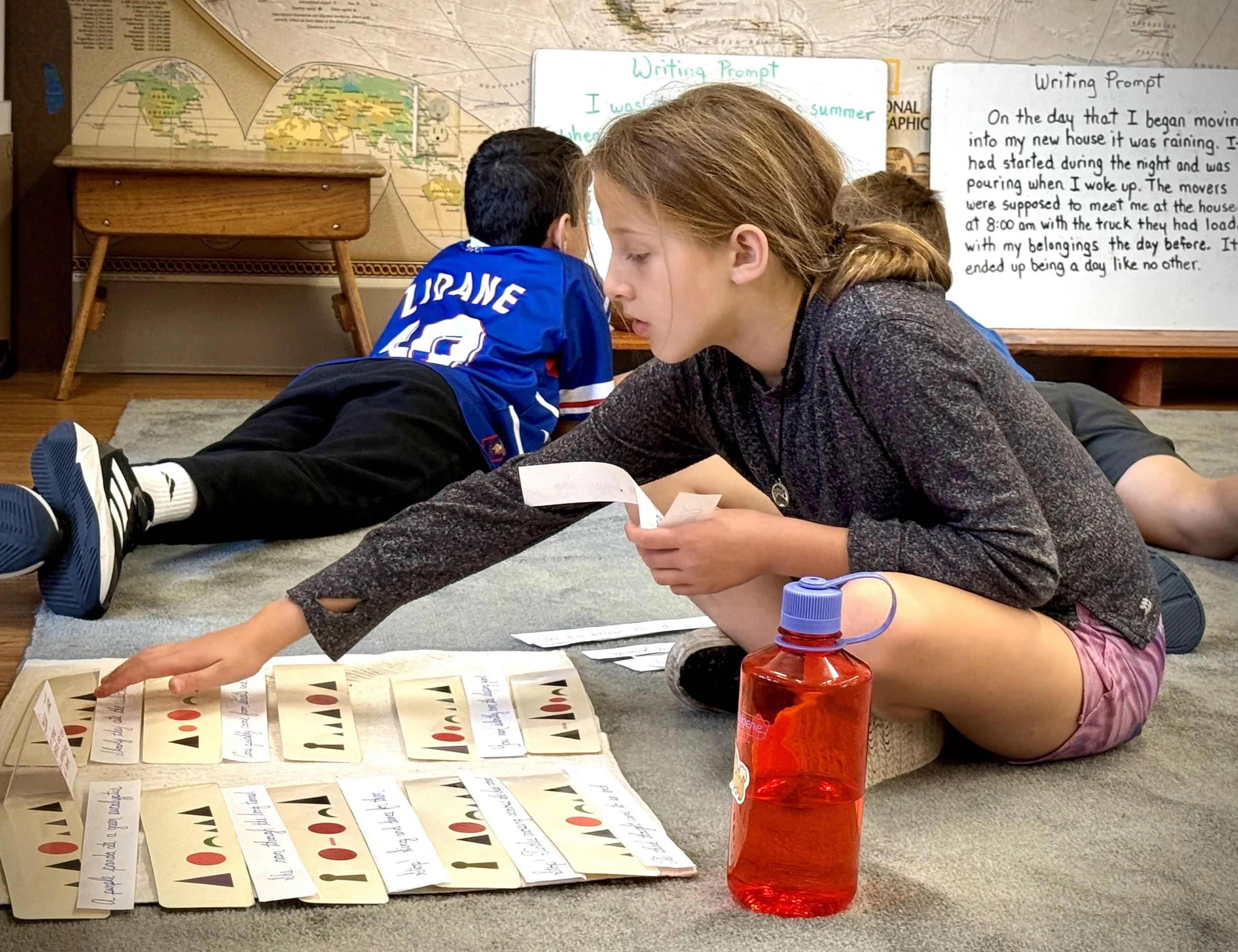
UPPER ELEMENTARY
GRADES 4-6
4th - 6th Grade:
8:30-3:00, M-F
THE AGE OF ‘WHY NOT’?
Upper Elementary curriculum is a continuation of the elementary experience that honors the unique developmental phenomena of the 9-12 year-old student.
The Practical Life curriculum of Upper Elementary involves more “going out” but also adds an element of trip planning and coordination of the student’s work. The main curricula areas of math, geometry, language, and cultural studies (history, geography, physical and life sciences) are present here, but are more refined and in greater depth.
In math, students continue to use materials to work toward the abstraction of math concepts, naturally formulating rules and formulas on their own through the use of the materials. In contrast to traditional methods of teaching math, which start with the rules and then conclude with memorization and tests, in the Montessori method, the rules are points of arrival, not departure. Through the student’s own effort, internalization of abstract concepts is achieved.
Although sophisticated in content, geometry at the Upper Elementary level continues to be well-grounded in concrete experiences with manipulative materials. In this way, etymology is discovered, relationships and concepts are explored and researched, and the child’s conclusions serve as a basis for theorems, proofs, and formulas.
With a more sophisticated level of language comes greater refinement in its use. While students continue to benefit from concrete experience with concepts in grammar and mechanics, they use cultural subjects as the primary source for expanding language skills. As students explore the world of history, biology, and geography, the study of language becomes an ongoing creative process of research, ideas, and imagination.
As the older child’s mind develops, so does the ability to think more abstractly. Spanning both space and time, the child’s imagination can now understand that which is not directly contacted by the senses: Neanderthals, Ancient Greece, velocity, bacteria, etc. Teachers present ideas, spark motivation, and introduce materials that allow the child to access the richness of the world’s knowledge. In this way, the cultural subjects also serve as vehicles for a variety of language skills, which include research, outlining, report writing, public speaking, and project work.
“As a parent, I couldn’t be more grateful for the incredible education my daughter has received. This school is truly special. The teachers are deeply passionate about what they teach, and that passion shines through in everything they do. They treat the children with genuine love and respect, creating a learning environment where students feel safe, valued, and understood. One of the things I appreciate most is how the teachers are always on the students’ side, supporting them not just academically, but emotionally and socially as well. They provide space for mistakes, encourage growth, and foster real independence. My daughter has grown in confidence, curiosity, and compassion, and I credit so much of that to the nurturing and empowering guidance she’s received here.”
Erin Garnett, Parent



